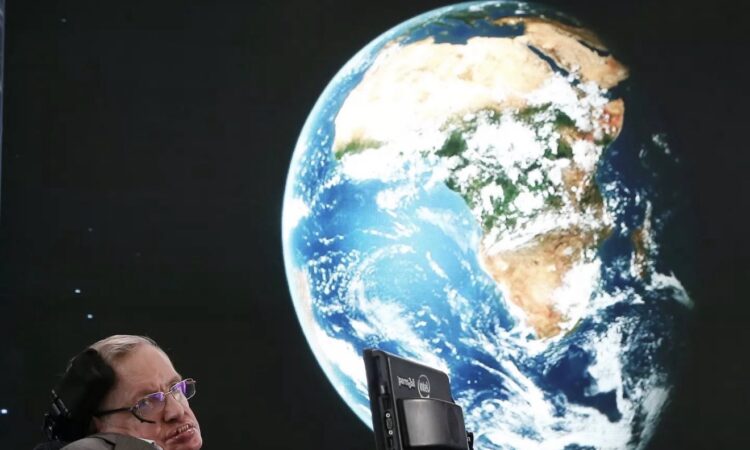
Stephen Hawking, one of the most brilliant scientists of our time, once gave a powerful and chilling warning about how the world might end — and what he said is becoming more relevant as time goes on.
In a talk he gave in 2017, just a year before he passed away, Hawking said that if humanity keeps growing in number and continues to use energy at the rate we currently are, we could end up destroying the planet. He warned that by the year 2600, the Earth might become so overcrowded and overheated from energy use that it would literally glow red — like a ball of fire. According to him, if we don’t change course, life on Earth won’t be able to continue.
Hawking also spoke about how quickly science and technology are advancing. He said there’s no sign that this progress will slow down, which might sound exciting, but he saw it as a danger. If everything keeps growing at the current pace, it could become unsustainable. For example, he joked that if we stacked every new book being published, you’d have to move at 90 miles an hour just to keep up with the end of the line. That was his way of saying we are producing more information and technology than we can reasonably manage or understand.
One of his biggest concerns was the risk of nuclear war. He believed that with so many countries having nuclear weapons — including the U.S., Russia, and North Korea — even one major conflict could lead to massive destruction, or even the end of civilization. He mentioned how political leaders, especially in countries like Russia, have used nuclear threats to gain power or intimidate others, which only increases the risk.
But it wasn’t just nuclear war that worried him. He also warned about the dangers of making contact with aliens. He explained that some people think advanced civilizations might destroy themselves before they ever get the chance to reach out to others. That could be why we haven’t heard from any extraterrestrial life. He even mentioned, half-jokingly, that maybe UFOs really are aliens and that governments are just keeping it secret — though he didn’t say he believed that for sure.
Hawking also believed that artificial intelligence (AI) could pose a huge threat to humans if it isn’t controlled properly. AI is already a big part of our daily lives, and it’s growing fast. A large majority of people in the U.S. use some form of AI every day, and experts predict the global AI industry will grow to nearly $5 trillion by 2033. While this technology has the potential to help us, Hawking worried that it could also replace human intelligence in dangerous ways if we’re not careful.
In another interview in 2016, he pointed out that climate change could also be one of the main reasons humanity doesn’t survive in the long run. Even if the risk of a major disaster happening in any single year is low, the odds add up over centuries. Eventually, he believed it’s almost certain that something — whether it’s global warming, nuclear war, or something else — could wipe out life on Earth.
He specifically blamed the greenhouse effect and the warming of the planet. Right now, scientists say we could pass a critical climate threshold — a 1.5°C temperature rise — within just a few years if we don’t reduce carbon emissions. That’s very bad news for ecosystems, weather patterns, and future generations.
Although we can’t reverse global warming overnight, Hawking believed that we can slow it down. People can help by switching to clean energy sources like solar or wind instead of using oil, gas, or coal. We can also reduce our carbon footprint by using eco-friendly transportation, like biking, walking, or using electric vehicles.
At one point, people even claimed that NASA agreed with Hawking’s warnings about the planet being in danger. But NASA later said they never officially supported those claims. However, they did say they’ve spent decades studying Earth from space and continue to provide important data that helps us understand and protect our planet.
In the end, Hawking’s message was simple but serious: if we don’t change the way we live — how we use technology, how we treat the environment, and how we manage threats like war and disease — we may end up being the cause of our own destruction.




